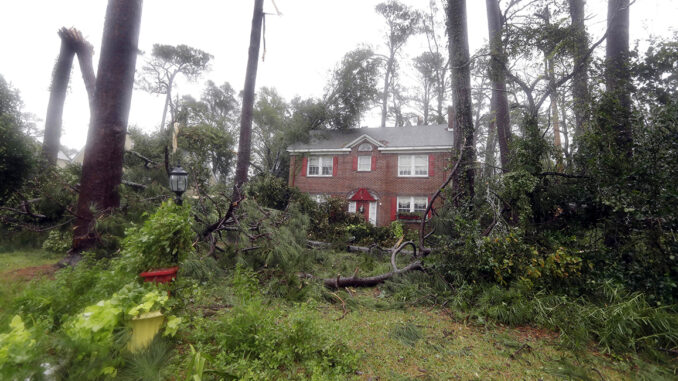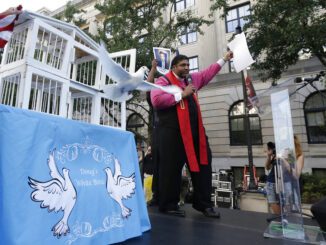
RALEIGH — A new audit report has found issues with the distribution of $112 million in Hurricane Florence funds.
The North Carolina Office of the State Auditor’s (OSA) new audit on the North Carolina Department of Public Safety’s (DPS) distribution of the funds found that from Feb. 1, 2021, to Dec. 31, 2023, DPS had distributed $18 million in Hurricane Florence to recipients with “limited monitoring.” For the same period, $94 million in funds went out “without ensuring all recipients had a method to measure results.”
“As a result, there was an increased risk recipients could have misused funds without the misuse being detected and then corrected in a timely manner,” the findings state. “Consequently, DPS was limited in its ability to determine whether funds were achieving legislatively intended results.”
Legislation passed by the General Assembly in October 2018 established the Hurricane Florence Emergency Response Act, which, over time, accumulated allocations totaling more than $942 million. Part of the act requires the OSA to monitor and issue reports on the spending of those funds.
According to the current audit, DPS had disbursed $877 million (93%) of that total to recipients and the remaining $30.1 million in unused funding was transferred back to the State Emergency Response and Disaster Relief Fund as required by statute.
Recommendations to remedy the issue include DPS monitoring external recipients getting money from the Florence funding to make sure that spending is “timely” and in accordance with the act. OSA also said DPS should develop a process or set of policies that contain objectives for future recovery and relief funds, and be able to measure the progress in meeting those objectives.
Additionally, the OSA recommended that the General Assembly should “consider including monitoring requirements in future legislation regarding disaster recovery or other emergency relief funds.”
DPS Secretary Eddie Buffaloe disagreed with the audit’s findings in the agency’s response.
“DPS was not specifically included in the legislation as ‘administering’ the funds to the external entities included in S.L. 2018-136,” Buffaloe wrote. “In fact, in November 2018 Assistant State Budget Officer Thomas Cheek delegated OSBM’s authority to DPS for DPS to directly request funds from the Hurricane Florence Disaster Recovery Fund to meet requirements of the Session Law.”
Buffaloe also wrote, “DPS contends its authority is limited in withholding funding or providing oversight or grants such as those specifically appropriated in S.L. 2018-136.”
As noted in the current audit report, OSA found similar problems in its April 2022 report on Florence funding. That report spanned Nov. 1, 2018, through Jan. 31, 2021, and found that DPS had “limited monitoring” and measurement issues of more than $1.28 billion. Former State Auditor Beth Wood later issued an audit of the Florence funds in November 2023 that said DPS had properly allocated and disbursed funds in “accordance with Hurricane Florence Recovery legislation.”
Additionally, in November 2022, the inspector general for the U.S. Housing and Urban Development agency issued an audit showing North Carolina’s disaster recovery program was not able to provide a “reasonable assurance” that it had property spent $2.5 million in Hurricane Matthew federal disaster relief funds.
Alongside DPS, the audit lists the North Carolina Office of Recovery and Resiliency (NCORR) as one of the parties responsible for the spending. NCORR was established by Gov. Roy Cooper during his first term in office.
NCORR’s struggles in getting victims of Hurricanes Matthew (2016) and Florence (2018) back into their homes have been the subject of multiple legislative oversight hearings.
The most recent oversight hearing was held in October, and NCORR Director Laura Hogshead was grilled about the governor’s Hurricane Helene spending proposal showing NCORR had a budget gap of $175 million. The gap surprised lawmakers since Hogshead’s agency has a budget of more than $1 billion. Testimony given by Cooper’s legislative counsel, Pryor Gibson, revealed the budget gap to actually be $221 million.
In the days that followed that hearing, DPS announced Hogshead was no longer an employee. DPS refused to clarify if she resigned or was fired, citing personnel file confidentiality as the reason for withholding the information.



